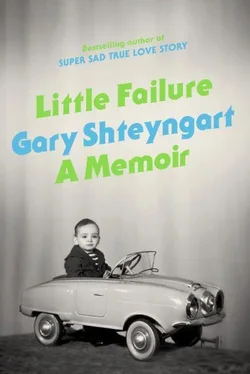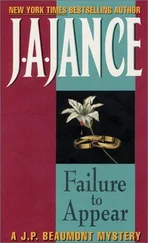After getting off his granite pedestal, Lenin meets a sympathetic talking goose, enormous in size, likely flying in from Georgia or Azerbaijan or Armenia or wherever else the dark men who sell flowers in the market come from. Lenin and the goose become best friends. Together, they make a pact: We will invade Finland!
Lenin gets on top of the goose, and they fly over the border into what will one day become the European Union, and Lenin begins bombarding the hapless Finns with our thick Soviet cheese from above. When not bombing the Finns, Lenin and the goose huddle together in their shalash and talk in capital letters, the goose saying things like “Have you heard, Vladimir Ilyich, that THE BUILDING OF THE BAIKAL-AMUR MAIN RAILROAD TRUNK HAS BEEN INITIATED?” Such a homey time Lenin and his fowl friend are having enclosed in those thick green branches, spruce branches from Moscow Square, naturally. But Vladimir Ilyich can bomb only so many Finns with cheese, because, you see, he has asthma!
It’s a little-known fact. He’s supposed to be so athletic, that Lenin, always swimming and ice-skating and so vibrant at chess, but, no, he is a fellow sufferer! All is proceeding according to the five-year plan, the Finns are almost ready to capitulate, when the talkative goose, probably a Menshevik, betrays Lenin to the Finnish secret police. The goose knows that Lenin is at his most vulnerable when he is having a raging asthma attack, so he lays Lenin down on his stomach, starts cupping him with banki , and then calls in the evil Finns. It’s almost curtains for the greatest genius of mankind, but Lenin manages to throw off the banki and break free of the Nordic swine. He captures the treacherous goose, cooks him in a big red pot, and enjoys a delicious goose feast with his newly converted socialist comrades.
Finis .

I am regurgitating everything in my oxygen-starved brain, from the low art of Nils and the Wild Geese to the high schlock of Soviet iconography. But it’s a crueler story than anything Selma Lagerlöf, Nils’s creator, could have made up in her democratic Sweden. The lesson of Lenin and His Magical Goose is: Love authority but trust no one. There’s also this. I am writing the novel for my grandmother, a Communist for most of her life, and I am saying, Grandmother: Please love me . It’s a message, both desperate and common, that I will extend to her and to my parents and, later, to a bunch of yeshiva schoolchildren in Queens and, still later, to my several readers around the world.

It is almost time for the Shteyngarts to leave Moscow Square.
Every few weeks, the asthma gets so bad that an ambulance comes screaming into our peeling courtyard. Dr. Pochevalova, whose presence has me so scared I can conjure neither her face nor form, is remembered only by the ugly, disgustingly ugly, words floating off her stern lips. “Inflammation of the lungs” ( vospaleniye lyogkikh ) and “mustard compresses” ( gorchichniye kompressy ).
On television they will not reair The Enchanted Boy , but I do see a show called Planet Andromeda , a crude Soviet attempt at Star Trek genius. The one scene that stays with me: Men — cosmonauts, I suppose — are being bombarded by some kind of solar ray against a black backdrop. The cosmonauts are screaming and withering in agony.
In the courtyard of our building there is a children’s slide that is affixed to a playground space rocket. I climb along the rusted metal ribs of the rocket, which I think of as the Good Rocket, and cautiously slide down the frozen incline, twenty kilograms of child, thirty kilograms of coat. The Good Rocket may be rusty, but it contains all the hopes and dreams of a nation that first catapulted a satellite, then a dog, then a man, into the void above us, into the void that is us.
The Bad Rocket is a grimy Dickensian steam pipe (oddly rocket shaped, with a wide bottom, a tapered body, and a capsule-like cone) that stretches up all five stories of our building and hums and vibrates in the night, as if it, too, has asthma. After watching Planet Andromeda , I convince myself that something evil is about to happen, that we are about to be bombarded with solar rays against a black backdrop, that the Bad Rocket will take off for the stars, that it will rip off a part of our building and drag me and Papa and Mama with it. I begin to sketch out ideas for a new book, Vladimir Ilyich Lenin Conquers Andromeda . Even the far-flung galaxies must be made safe for socialism.
Unbeknownst to me, the Soviet Union is falling apart. The grain harvests have been terrible; there is hardly enough grain to feed the masses or keep them fully drunk. Meanwhile, in the United States a grassroots movement to free Soviet Jews from their polyester captivity has gained momentum. And so, the American president Jimmy Carter has reached a deal with the Russians. In exchange for tons of grain and some high technology, presumably television sets that won’t explode with such regularity, the USSR will allow many of its Jews to leave. Russia gets the grain it needs to run; America gets the Jews it needs to run: all in all, an excellent trade deal.
My parents have surrendered their jobs, sold our five-hundred-square-foot apartment, and are using the remaining rubles to ship our glossy Romanian furniture and our Red October upright piano across the Black Sea, across the Mediterranean, across the Atlantic, across any body of water that will float this strange, superannuated cargo. My mother’s increasingly senile mother, Grandma Galya, has signed the documents that will permit her daughter to emigrate (another humiliating requirement of the system: parental consent). The right visas have been placed in my parents’ passports, the rare exit visas that allow Soviet citizens to do the unthinkable — to get on an airplane and exit the best country in the world, the country of workers and strivers. We are about to take off for the stars, and Grandma Galya and her cheese will be left behind, so all that will remain is the memory of a thick old woman in a floral skirt and the sound of the big pencil against graph paper, her smile as she proofread my childish ravings. And there will be no more walks to Chesme Church to launch toy helicopters into the spires as my father, that predigital Wikipedia of a man, gestures at the architecture and lectures me sweetly in my mother tongue: “The first well-known church designed as a departure from the Byzantine style is the Cathedral of St. Sophia in Novgorod, built between 1045 and 1050 A.D.”
And another dear someone will be left behind.

Lenin, my goose, my fierce bloody friend, my dreamer. What do you dream of now, on your pedestal at Moscow Square, in your mausoleum in actual Moscow?
Do you ever, would you ever, dream of me?

The author’s mother at age eleven, with the worried adult gaze he will grow to know well. Note the pretty bow in her hair. The year is 1956, and the place is the Soviet Union.
“IT SEEMS LIKE you don’t really know me.
“You see me through your father’s eyes.
“And sometimes I think I do not know you.”
Читать дальше














